The Ira A. Fulton Schools of Engineering at Arizona State University is proud to launch its Semiconductor Packaging: Fundamental Concepts and Drivers badge. This course is designed to provide foundational knowledge and practical skills in semiconductor packaging, which are essential for driving innovation in the electronics manufacturing industry.

The badge targets professionals seeking to advance their careers and gain specialized expertise in semiconductor packaging. Whether you are a seasoned professional or an aspiring newcomer, this educational experience will equip you with an introduction to the design and concepts used across semiconductor packaging.
The curriculum is structured into four, 10-hour micro-badges, each focusing on a specific aspect of semiconductor packaging:
- Introduction to Semiconductor Packaging and Design
- Introduction to Electrical Concepts and Semiconductor Packaging
- Introduction to Thermal Management and Mechanical Properties of Packages
- Introduction to Packaging Materials, Manufacturing, Test, and Reliability
Through theoretical knowledge and hands-on practical sessions, participants will explore the intricacies of semiconductor packaging, from design principles to testing and reliability considerations. The badge will cover various topics, including electrical concepts, thermal management, mechanical properties, packaging materials, manufacturing processes, and testing methodologies.
The micro-badges will be offered in a scheduled format, with classes held on specific dates from September 3, 2024–September 26, 2024. Each micro-badge will consist of three sessions, scheduled from 5:30 pm–9 pm, allowing participants to balance their professional and educational commitments.
This badge is designed for individuals with no prior experience in semiconductor packaging, making it an accessible entry point for those interested in exploring this dynamic field. By completing all four micro-badges, participants will earn a full badge, demonstrating their comprehensive understanding of semiconductor packaging fundamentals.
ASU’s Professor Terry Alford, Associate Professor at the School for Engineering of Matter, Transport and Energy, and Professor David Theodore, Faculty Associate at the same school, will teach the Badge. With their extensive academic and industry experience, participants will benefit from high-quality instruction and gain practical insights into the semiconductor packaging industry. “This Badge provides a unique opportunity to gain a deep understanding of semiconductor packaging, a critical component of modern electronics,” said Professor Alford. “Participants will not only learn the fundamentals but also develop practical skills that will prepare them for successful careers in this rapidly advancing field.”
Dr. Theodore added, “The semiconductor industry is constantly evolving, and staying up-to-date with the latest packaging technologies is essential for professionals in this domain. Our Badge offers a comprehensive overview of semiconductor packaging, from design to testing, ensuring that participants are well-equipped to tackle real-world challenges.”
As one of the world’s top-ranked engineering schools, the Ira A. Fulton Schools of Engineering is recognized globally for providing high-quality qualifications. By enrolling in this badge, participants will acquire valuable knowledge, enhance their employability, and position themselves for success in the ever-evolving electronics industry.
For more information visit careercatalyst.asu.edu/programs/sp-fundamental-concepts-drivers/.
—
Authored by Braveman Mpafa



